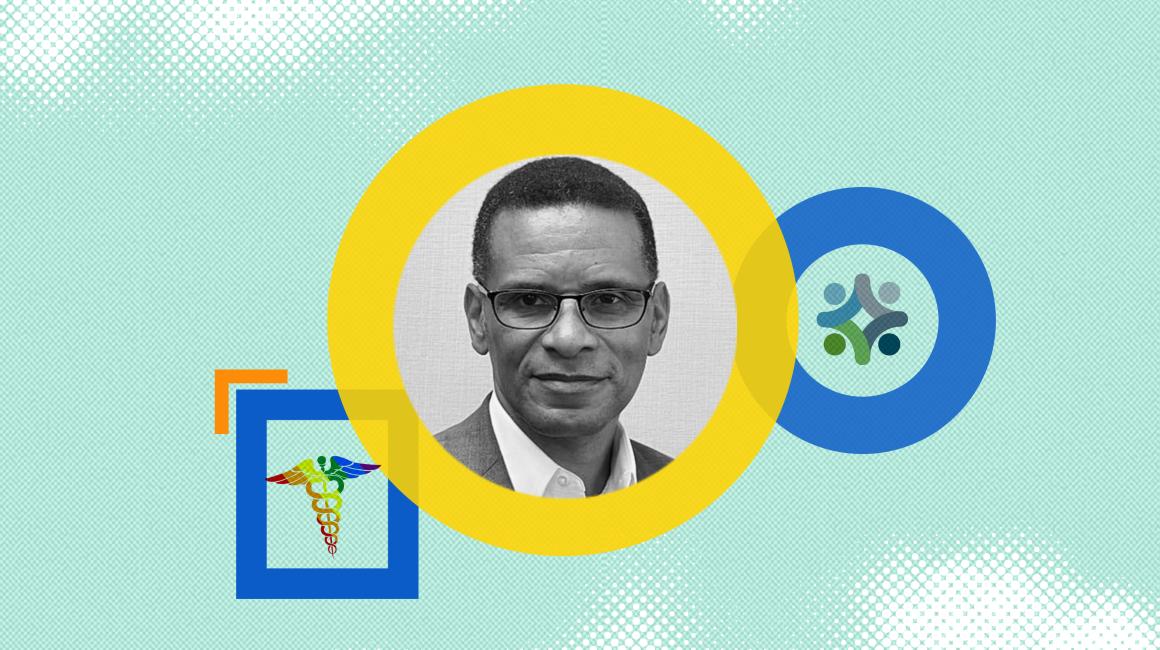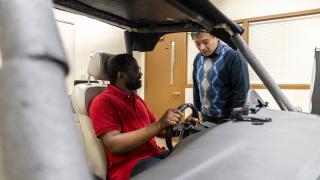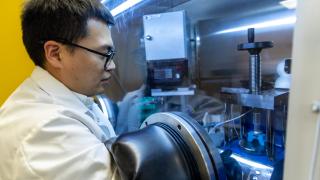Laying the Groundwork
Michigan's LGBTQ+ Commission was created to advise state government and legislative leaders and to improve community engagement, advocacy and awareness on issues affecting the LGBTQ+ community. "It’s vital that we improve access to comprehensive health care for LGBTQ+ people, including mental health services, HIV prevention and care, and gender-affirming care, while ensuring health care providers are knowledgeable and sensitive to the needs of LGBTQ+ patients," Williams says. "Another priority area is support for policies and programs that serve LGBTQ+ youth. Anti-bullying initiatives and inclusive education curricula help create safe environments in schools and communities."
The commission is quite new, and its initial focus is simply laying the groundwork for its members and identifying short- and long-term goals. They have, however, already come together to issue a statement condemning a state representative’s remarks supporting Uganda’s new anti-homosexuality act. "We felt that it was necessary to show support for the LGBTQ+ community in Uganda in the face of persecution and discrimination," Williams says.
Corktown Health Grows
Throughout his work with the commission, Williams will continue in his role at Corktown Health, where he says he is "honored to lead an amazing organization with a truly remarkable team." Corktown Health is growing, with a new $8 million state-of-the-art facility set to open in Hazel Park in 2025.
"Our decision to expand into Hazel Park underscores our unwavering commitment to serving more members of the LGBTQ+ community, particularly those who face barriers in accessing culturally competent and sensitive health care services," Williams says. "Our new facility is envisioned to be a pivotal community resource offering comprehensive primary care, dental care, mental health services, HIV prevention and care, gender-affirming treatment, STI testing and treatment, and a range of supportive services to ensure access to basic needs."
On its main campus in Detroit, Corktown Health will soon open the city's first LGBTQ+ senior center, in partnership with MiGen-Michigan LGBTQ+ Elders Network. Williams sees the expansion as part of Corktown Health's strategy to improve access to health care for all LGBTQ+ individuals in the state.
Corktown Health is also a part of the UM-Dearborn community, partnering with the university’s Prevention Services team to provide sexual health, menstrual, and hygiene products to students and host rapid HIV testing, among other services.
A Career in Care
Williams has seen incredible advancements in LGBTQ+ rights and health care throughout his career, though he says the work continues.
"Michigan took a significant step in protecting LGBTQ+ rights by amending the state's Elliott-Larsen Civil Rights Act to prohibit discrimination based on sexual orientation and gender identity in employment, housing and public accommodations," Williams explains. "Legal advancements have resulted in improved recognition and protections for LGBTQ+ families, including on issues related to adoption, marriage and parental rights. Many municipalities have taken action towards banning so-called conversion therapy, a harmful practice that has been widely discredited and condemned by numerous health and psychological associations. Although we still have a long way to go, there have also been efforts to improve protections and affirm the rights of transgender individuals as part of broader civil rights initiatives, including ensuring access to gender-affirming health care and addressing issues of violence and discrimination against transgender people."
The most significant medical advancement Williams has seen in his time in the field is the development of antiretroviral therapy to treat HIV/AIDS. "ART medications revolutionized HIV treatment," he says. "With consistent medical care and medication, people living with the virus can now lead long, healthy lives." ART has also helped reduce new HIV/AIDS infections from those with HIV, while the development of pre-exposure prophylaxis has protected HIV-negative individuals from becoming infected. "These breakthroughs represent monumental strides in the fight against HIV and transformed the virus from a once fatal diagnosis to a manageable chronic condition," Williams says.
The growth of telehealth services has also revolutionized care — especially mental health services — for LGBTQ+ individuals in rural or underserved areas, Williams adds. Culturally sensitive training has also made a marked difference. "We have seen an increased emphasis on training health care providers in LGBTQ+ cultural competency to ensure that all patients receive respectful, knowledgeable, and affirming care," he observes.
UM-Dearborn's Impact
Williams began his education at UM-Ann Arbor before landing a full-time job in Detroit. "I initially enrolled at UM-Dearborn, intending to take a few classes and complete my final semester back in Ann Arbor," he explains. "However, I quickly grew to appreciate the flexibility and close interactions with instructors that UM-Dearborn offered. It was here that I discovered my true passion lay in business and law, a realization that came to light thanks to the guidance and mentorship of exceptional professors who went beyond classroom teaching to offer valuable academic and professional advice. Their pivotal guidance led me to change my major, fully embracing the enriching environment at UM-Dearborn.
"I flourished in this setting and chose to complete my education here," he continues. "This decision set the foundation for my career in health care administration, and later, as I pursued law school (at Wayne State University), I was able to rely on the support of my former instructors.”
While it wasn’t a part of his original plan, Williams says UM-Dearborn played an outsize role in determining his future. "My journey did not originally envision UM-Dearborn as a part of my educational path, yet I can unequivocally say that the personalized attention and the chance to forge meaningful connections with professionals actively engaged in their fields were instrumental in shaping my career,” he says. “This shift altered my career trajectory and was also a fundamental building block for the success I've achieved thus far."
Article by Shaun Manning




